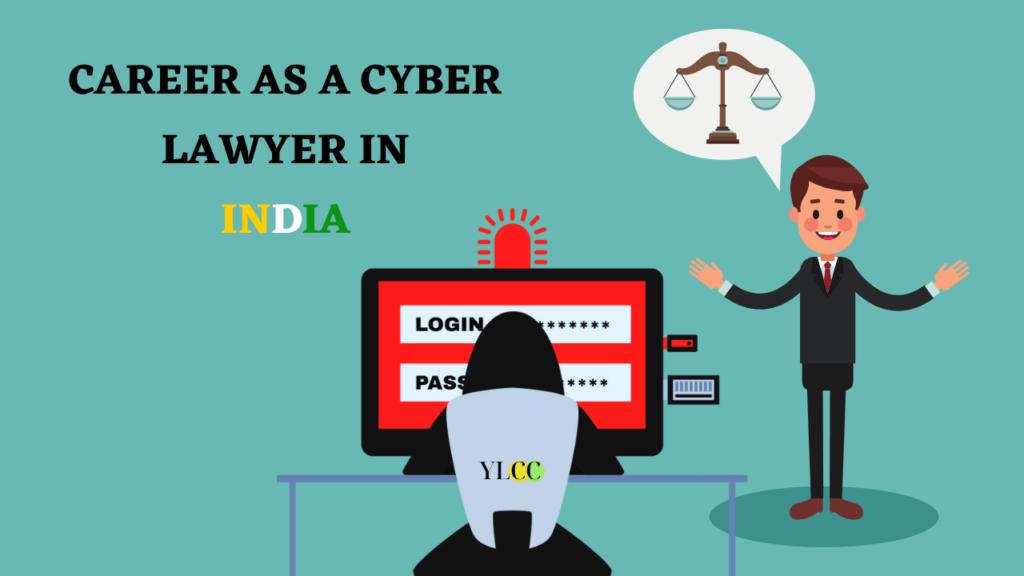
Introduction
The Internet has witness global exponential growth, and cybercrime has undoubtedly grown at the same rate. To combat cybercrime, the demand for cyber law professionals has accelerated. Cyber law is an important and emerging field in which you and other tech-savvy individuals can demonstrate your expertise.
A cyber lawyer is a lawyer who practices in the area of Information Technology and Law. They have to deal with cases of cyber crimes against individuals, company or government organisation. An excellent cyber lawyer must have a thorough understanding of internet activities and the knowledge of the latest technology and concepts like cryptocurrency, cyber security, firewall, malware and so on. He/she must be proficient in implementing appropriate cyber laws while dealing with various cyber-related issues.
Let us understand how one can become a cyber lawyer in India.
Eligibility
To practice as a cyber lawyer in India one has to pursue the following:
- Under Graduation– Individuals interested in a career in cyber law must have passed the 10+2 examination in any stream with a minimum of 50% marks in aggregate to take admission in Bachelor degree in law. You can either opt for an integrated course or do your graduation first and then go for LLB. Most universities provide five-year integrated programmes. BA/BBA/BSc/BCom+ LLB are examples of such degrees. Another integrated programme is BTech + LLB, which takes six years to complete.
- Post Graduation– You can enroll in LLM courses in cyber law from a reputable Indian or foreign university as soon as you finish your graduate degree with an LLB.
- Enroll with Bar Council– After completion of your course it is imperative to get enrolled at the Bar Council of India by qualifying for the All India Bar Examination (AIBE). Afterwards, you can work under a senior lawyer for a few years & practice.
- It is advisable that one may practice for a few years after the LLB and then go for LLM.
- Postgraduate Diploma–Pursuing PG Diploma is another good option if you are not going for Post graduation. The duration for PG Diploma in cyber law will be for one year and gives you a specialisation.
- Additional Learning-There are also many short term and long term certificate courses available both online and offline in cyber law. One can also opt for these courses during and after graduation to enhance their knowledge and skills.
Top Universities in India for Cyber Law Courses
- Nalsar University of Law, Hyderabad (NALSAR)
- National Law Institute University, Bhopal (NLIU)
- The Indian Law Institute, Delhi
- National Law School of India University, Bangalore
- Indira Gandhi National Open University- IGNOU
Top Foreign Universities for Cyber Law Courses
- University of Maryland
- Northumbria University
- Michigan State University
- Drexel University
- Georgia Institute of Technology
Skills required to be a Cyber Lawyer
- Knowledge of law (especially procedural laws, IPR, IT Act, privacy laws among others)
- Knowledge of technology
- Contract drafting
- Analytical thinking
- Good command over Language (English, Hindi etc.)
Job roles as a Cyber Lawyer
The field of cyber law is vast for a lawyer practicing in cyber law. Various job roles are discussed hereunder:
- Cyber Lawyer– A cyber lawyer is in charge of dealing with cybercrime such as cyberstalking, identity theft, and ransomware attacks, among other things. They can be tasked with resolving cyber-attacks involving businesses, law enforcement agencies, and private businesses.
- Cyber Assistant- Cyber Assistants are appointed to identify and rectify current and possible security issues, as well as to protect systems by defining control structures, network access, and control structures. They’re also in charge of implementing security measures by analysing the current situation, evaluating trends, and anticipate potential needs.
- Cyber Consultant- Cyber consultants are supposed to give legal advice and suggestions on important cyber law issues and subtopics. They should be familiar with computer networking protocols and principles, as well as network security methods. IT firms, banks, police departments, web developers, and cyber security firms all hire cyber consultants.
- In House Counsel- In-house counsels have to assist in assessing cyber risks and advocating for a board member who will be responsible for a company’s cyber security. They may be asked to inform corporate members about the company’s cybersecurity vulnerabilities and suggestions on how to improve those flaws.
- Cyber Law Expert- Experts in cyber law assist businesses in keeping their computer information systems safe and secure. They are in charge of determining who needs access to which information, as well as planning, coordinating, and implementing all information security procedures.
- Cyber Law Lecturer– An assistant professor or lecturer in cyber law should have extensive experience in teaching cyber law courses as well as a thorough understanding of the subject. They must have a thorough understanding of teaching approaches relevant to cyber law and be able to communicate this knowledge to trainees.
Salary
Cyber law is a considerably rewarding field. Salary for cyber lawyers varies depending on a number of criteria, including the individual’s educational background, employment experience, and license. In India, a professional cyber lawyer might make up to 5-12 lakh rupees annually or even more depending upon their clientele. Freshers can expect to earn roughly 3 lacs per year. Moreover, in-house counsel for companies especially IT firms in this field can expect a comparatively high salary than others.
Top Recruiting Companies/Law Firms
- Trilegal India
- Shardul Amar Chand Mangal Das and Company
- Top Gear Consultants
- Spectra Force Technologies Logo
- S & R Associates
- Luthra & Luthra Law Offices
- Scriboard
- Contique Global
Pros
- It is a fantastic opportunity for those who are passionate in both legal and technical fields.
- As it is still in its early stages, this industry has significant potential to create a lot of jobs in near future in India.
- A sense of accomplishment in safeguarding cyberspace from rising cybercrime.
Cons
- Working in this sector necessitates a lot of patience and consistency.
- Highly skilled job that requires in-depth knowledge of dynamic laws and technology to excel.
- Long working hours and continuous study and revision are required owing to dynamic nature of law and technology.
Conclusion
Cyber law is a multi-dimensional field with immense potential that makes a cyber lawyer a genuinely global practitioner. Cyber law poses a challenge to strike a balance between technical knowledge and legal know-how. However, some believe that legal knowledge will take precedence over technical understanding in the practice of cyber law. Both IT and legal skills must be developed concurrently through continual study, practice, and exposure.
YLCC would like to thank Mili Kanoujiya for her valuable insights in this article.






